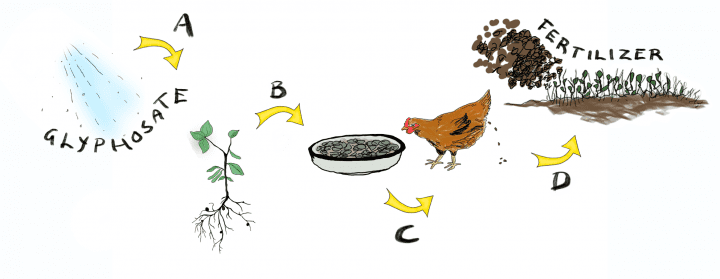New article on glyphosate residue effects to crop plants
Muola, A., Fuchs, B., Laihonen, M., Rainio, K., Heikkonen, L., Ruuskanen, S., Saikkonen, K., Helander, M: Risk in the circular food economy: Glyphosate-based herbicide residues in manure fertilizers decrease crop yield. Science of the Total Environment, doi: https://doi.org/10.1016/j.scitotenv.2020.141422
Abstract
Glyphosate-based herbicides (GBHs) are the most frequently used herbicides globally. They were launched as a safe solution for weed control, but recently, an increasing number of studies have shown the existence of GBH residues and highlighted the associated risks they pose throughout ecosystems. Conventional agricultural practices often include the use of GBHs, and the use of glyphosate-resistant genetically modified crops is largely based on the application of glyphosate, which increases the likelihood of its residues ending up in animal feed. These residues persist throughout the digestive process of production animals and accumulate in their excretion products. The poultry industry, in particular, is rapidly growing, and excreted products are used as plant fertilizers in line with circular food economy practices. We studied the potential effects of unintentional glyphosate contamination on an agronomically important forage grass, meadow fescue (Festuca pratensis) and a horticulturally important strawberry (Fragaria x vescana) using glyphosate residues containing poultry manure as a plant fertilizer in a common garden experiment. Glyphosate in the manure decreased plant growth in both species and vegetative reproduction in F. x vescana. Furthermore, our results indicate that glyphosate residues in organic fertilizers might have indirect effects on sexual reproduction in F. pratensis and herbivory in F. x vescana because they positively correlate with plant size. Our results highlight that glyphosate can be unintentionally spread via organic fertilizer, counteracting its ability to promote plant growth.
